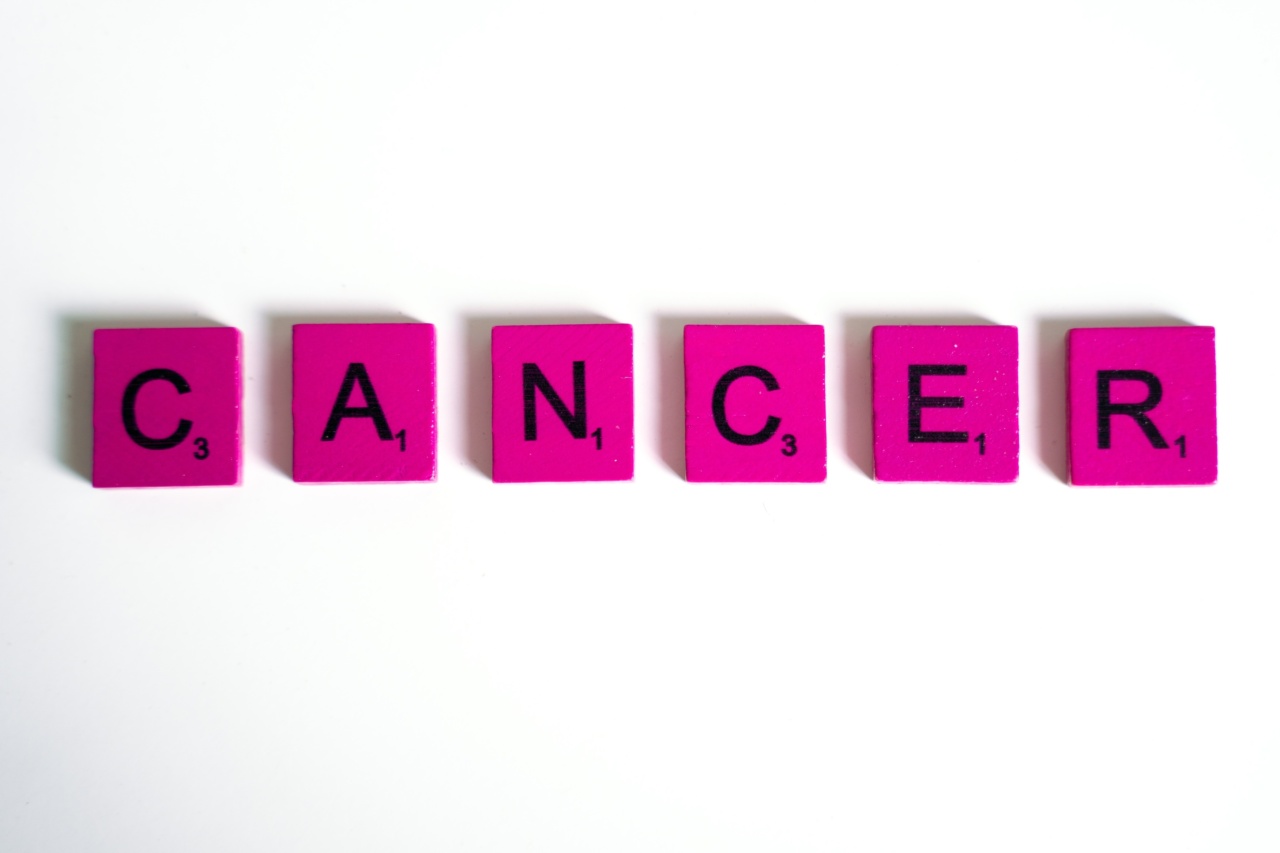Prostate cancer is one of the most common types of cancer in men, affecting the prostate gland, which is responsible for producing seminal fluid.
It is important to be aware of the signs and symptoms of prostate cancer so that it can be detected early and treated more effectively. In this article, we will discuss the key signs to watch out for and how to recognize them.
1. Frequent Urination:
One of the most common early signs of prostate cancer is frequent urination. If you find yourself needing to urinate more often than usual, especially during the night, it could be a potential sign of prostate cancer.
However, it is important to note that various factors like age and urinary tract infections can also cause increased frequency of urination, so it is recommended to consult a healthcare professional for further evaluation.
2. Weak Urinary Stream:
Prostate cancer can cause a decrease in the force of the urinary stream. If you notice that your urine flow has become weak or that it takes longer to empty your bladder when urinating, it may be an indication of prostate cancer.
This symptom is particularly common in advanced stages of the disease when the prostate gland enlarges and obstructs the urinary tract.
3. Blood in Urine or Semen:
Another important sign to pay attention to is the presence of blood in the urine or semen. This can occur due to prostate cancer spreading to the blood vessels near the prostate gland.
If you notice any blood in your urine or semen, it is crucial to consult a healthcare professional to determine the cause and rule out prostate cancer or other potential underlying conditions.
4. Erectile Dysfunction:
Erectile dysfunction, or difficulty achieving or maintaining an erection, can also be a sign of prostate cancer. The cancer cells may press on the nerves and blood vessels that are responsible for triggering and maintaining an erection.
However, it is important to note that erectile dysfunction can be caused by numerous factors, and prostate cancer is just one of them. Consulting a healthcare professional is necessary for proper diagnosis and treatment.
5. Pelvic Discomfort or Pain:
As prostate cancer progresses, it may cause discomfort or pain in the pelvic area. This can occur due to the tumor growing and pressing against the surrounding tissues and nerves.
If you experience persistent pain or discomfort in your pelvic region, it is essential to seek medical attention to determine the cause and appropriate course of action.
6. Bone Pain:
Prostate cancer can spread to the bones, resulting in bone pain. This is often experienced in the lower back, hips, or thighs.
If you have unexplained and persistent bone pain, it is crucial to consult a healthcare professional to evaluate the cause of the pain and determine appropriate treatment options.
7. Weight Loss:
Unintentional weight loss can sometimes be a sign of advanced prostate cancer. Cancer cells can alter the way the body uses energy and nutrients, leading to weight loss even without significant changes in diet or exercise.
If you are experiencing unexplained weight loss, it is essential to consult a healthcare professional for further evaluation.
8. Fatigue and Weakness:
Feeling constantly tired, weak, or lacking energy can be a symptom of various health conditions, including prostate cancer. Cancer-related fatigue is different from normal tiredness and may not improve even with adequate rest.
If you are experiencing persistent fatigue and weakness, it is important to consult a healthcare professional to determine the underlying cause.
9. Difficulty in Starting or Stopping Urination:
A noticeable difficulty in starting or stopping urination can be indicative of prostate cancer. This symptom occurs when prostate cancer affects the urethra or bladder outlet, leading to urinary flow problems.
However, it is essential to distinguish this symptom from other non-cancerous prostate conditions that can cause similar urinary difficulties, so consulting a healthcare professional is advised.
10. Lymph Node Swelling:
In later stages of prostate cancer, lymph nodes near the prostate gland may become enlarged. These swollen lymph nodes can be felt during a physical examination or self-exam.
If you notice any unusual lumps or swelling in your groin area, it is important to seek medical attention to determine the cause and appropriate course of action.






























